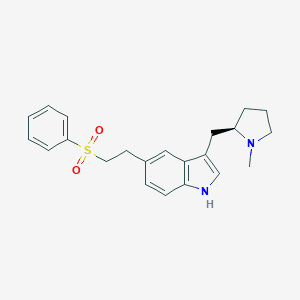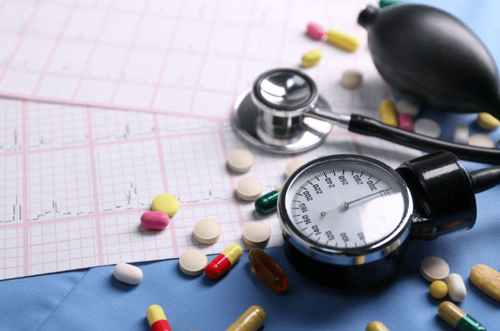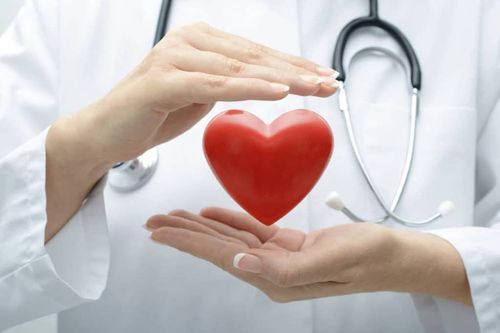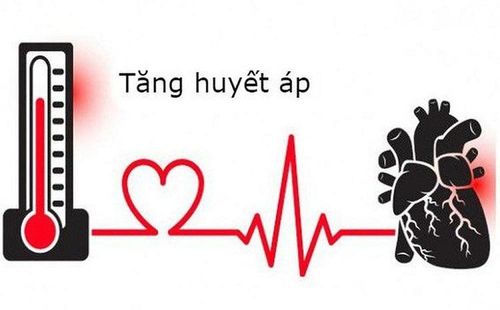This is an automatically translated article.
The article is professionally consulted by Dr. Nguyen Van Duong - Interventional Cardiologist, Vinmec Central Park International General Hospital.
Malignant hypertension or malignant hypertension has dangerous symptoms such as blurred vision, inability to concentrate, anxiety, weakness in limbs. If not treated in time, there may be strokes, angina (acute myocardial infarction) or worse, heart failure - acute pulmonary edema. That is why it is called the "silent killer".
1. What is malignant hypertension?
You will be diagnosed with hypertension if one or both of the following occur (according to the World Health Organization):
The systolic blood pressure reading (SBP) is greater than or equal to 140 mmHg; The diastolic blood pressure (DBP) reading is greater than or equal to 90 mmHg. Malignant hypertension is a hypertensive emergency with end-organ damage, accounting for 1% of hypertensive patients; Common in young people, Africans, people with a history of kidney failure or renal artery stenosis... The disease will affect organs sensitive to high blood pressure such as: brain, heart, kidneys, eyes.
A malignant hypertensive crisis requires immediate treatment as symptoms are manifested by severe internal organ damage. If not treated promptly, you are likely to face serious health-related consequences such as heart failure, acute myocardial infarction, stroke, blindness, kidney failure... The fact is Malignant hypertension can be directly life-threatening if not treated promptly.

Tăng huyết áp - kẻ sát nhân thầm lặng.
2. Causes of malignant hypertension
Malignant hypertension occurs mainly in people with a history of hypertension. It is also common in men and smokers. On the other hand, people with blood pressure readings above 140/90 mmHg have a very high risk of facing malignant hypertension. According to a 2012 clinical review, about 1-2% of people with hypertension develop malignant hypertension.
Besides, some specific health conditions can also cause malignant hypertension such as:
Renal dysfunction or kidney failure; Use of drugs such as cocaine, amphetamines, birth control pills, or monoamine oxidase inhibitors; Preeclampsia is common in 20 weeks pregnant, but can sometimes occur earlier in pregnancy or even after delivery; Spinal cord injury; Renal artery stenosis; Aortic valve stenosis ; Do not take medication for high blood pressure. If you are suffering from high blood pressure and have any unusual symptoms, immediately go to the nearest medical facility for timely treatment and emergency care.
3. Symptoms of malignant hypertension
Many people like to say that high blood pressure is a "silent killer", because it does not have any obvious signs or symptoms but has serious health consequences. However, unlike normal hypertension, malignant hypertension has obvious symptoms including:
Vision is changed, and the eyes are often blurred; Chest tightness, feeling of pressure or pressure in the chest; Forgetfulness, decreased ability to concentrate; Nausea and vomiting; Numbness of facial muscles and extremities; Shortness of breath; Headache; Difficulty urinating and urinating less. Malignant hypertension may also result from a case of hypertensive encephalopathy. This condition directly affects your brain, including symptoms such as:
Severe headache; Blurred vision; Dementia; Indifference to everything; Convulsions. Numbness or weakness, hemiplegia. Cases of hypertension and hypokalemia:
This is a fairly common clinical form with special attention. Patients with this condition will find it very difficult to control their blood pressure and are prone to dangerous events such as:
Events due to hard-to-control blood pressure such as stroke; Events due to hypokalemia such as arrhythmias, sudden paralysis of the lower extremities...; Doctors may not initially appreciate the magnitude of the problem, thinking of hypokalemia due to simpler causes such as laboratory tests, diuretics, not eating enough, etc.).
Therefore, it is necessary to have a right, quick and comprehensive view of this condition, avoiding ignoring cases that can be completely cured; avoid complications, unfortunate events that could have been prevented for the patient.
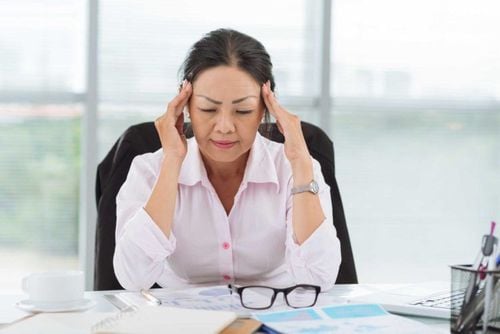
Tăng huyết áp ác tính có những triệu chứng rõ ràng
4. Complications of malignant hypertension
Malignant hypertension can cause many serious complications to the three main organs of the heart, kidneys and brain. Many patients only develop hypertension when there is a complication in one of these organs, but by then it is quite late.
In the heart, hypertension can cause left ventricular hypertrophy, heart failure, coronary artery disease, aortic aneurysm, arrhythmia, sudden death; In the kidneys, high blood pressure can cause kidney failure; In the brain, high blood pressure can cause a stroke (usually cerebral infarction, in addition to cerebral hemorrhage, subarachnoid hemorrhage). And yet, high blood pressure is also a cause of metabolic syndrome (a syndrome including abnormalities in the body's metabolism, which is a risk of diabetes, coronary heart disease, stroke), damage eyesight, dementia... The higher the blood pressure, the greater the risk of complications.
5. Treatment of malignant hypertension
Malignant hypertension can be directly life-threatening and requires medical attention as soon as possible to safely lower blood pressure to ideal levels and avoid potentially dangerous complications. out.
The most commonly used treatment is intravenous blood pressure control. This allows the drug to take effect immediately. Treatment will take place in the emergency room, after which the patient will be transferred to the intensive care unit.
When your blood pressure is stable, your doctor will prescribe oral medication to control your blood pressure. This medication will help you stabilize your blood pressure at home.
If you are diagnosed with malignant hypertension, you need to follow all recommendations from your doctor including regular follow-up visits to monitor your blood pressure and use the right blood pressure control medication.
6. Prevention of malignant hypertensive crisis

Tập thể dục tối thiểu 30 phút mỗi ngày để phòng ngừa cơn tăng huyết áp ác tính
If you have high blood pressure, it is important to have your blood pressure checked regularly. Blood pressure monitoring is also important in maintaining medication without overdosing. You should also try to maintain a healthy lifestyle and follow your doctor's advice.
Here are some ways to help lower your blood pressure:
Build a healthy diet: Try the diet for high blood pressure (DASH). It includes fruits, vegetables, low-fat dairy products, potassium-rich foods, and whole grains; avoid and limit saturated fats; Limit salt use: It is recommended to use less than 1.5g per day if you are over 50 years old or have diabetes, high blood pressure or chronic medical conditions. Remember that processed foods are always very high in salt; Exercise at least 30 minutes a day; Lose weight if you are overweight; Practice yoga, meditation to help manage stress; Quit smoking; Limit alcoholic beverages; Monitor blood pressure at home. Go to a medical facility immediately if you feel you have unusual symptoms for timely emergency care, to avoid complications that cause serious damage to other organs.
To best prevent malignant hypertension, people who already have high blood pressure or are in a group at risk of high blood pressure should register themselves for a Blood Pressure Checkup Package at the hospital to be carried out. present a full range of diagnostic measures from general to advanced.
The best choice for you when choosing a hypertension screening package is the Basic Hypertension Checkup Package and the Advanced Hypertension Checkup Package which are being implemented very successfully at Vinmec International General Hospital.
Vinmec is one of the leading hospitals in Vietnam with comprehensive quality in terms of medical qualifications, facilities and medical services. Specifically:
The medical team are leading experts with high professional qualifications, always dedicated and wholeheartedly for the benefit of the patient. With 90% of doctors having university degrees, 20% are professors, associate professors, nearly 30% are doctorates, bringing high efficiency in medical examination and treatment; Comprehensive and professional medical examination, consultation and treatment services; System of modern equipment, supporting effective diagnosis and treatment; Modern, civilized, luxurious and sterile medical examination and treatment space. If you have any questions or need advice about the hypertension packages at Vinmec, please contact to book online HERE.





